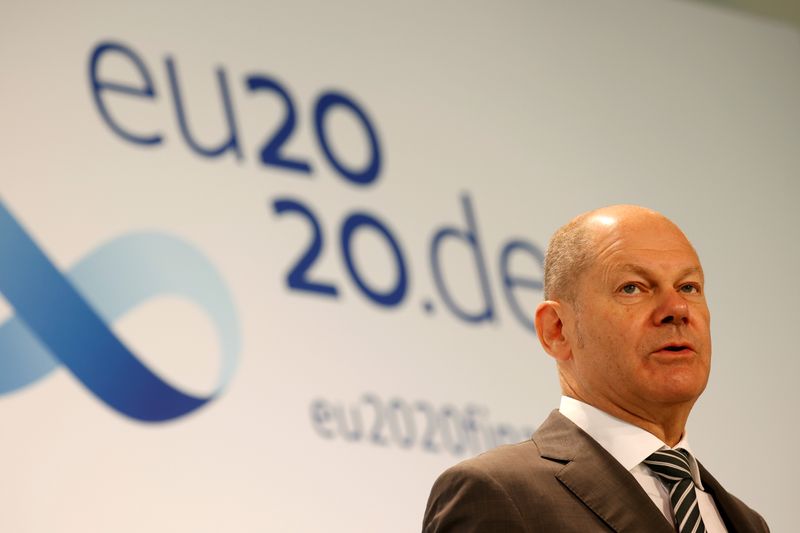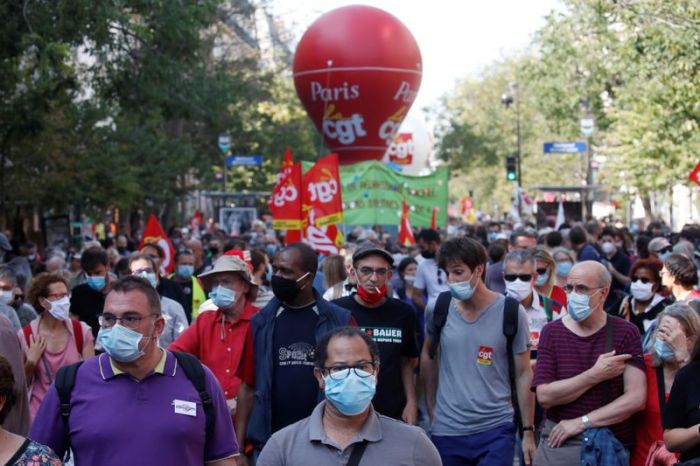BERLIN (Reuters) – German Finance Minister Olaf Scholz plans to take on net new debt of nearly 100 billion euros ($118 billion) next year to fight the coronavirus pandemic, four people familiar with the matter told Reuters on Thursday.
The plans underline an increased readiness in Berlin to boost borrowing after a source told Reuters earlier this month Scholz had initially eyed additional debt of at least 80 billion euros in his draft 2021 budget.
The pandemic plunged Europe’s largest economy into its deepest recession on record in the first half of the year. Berlin unleashed an unprecedented array of rescue and stimulus measures, financed with record new borrowing of some 218 billion euros, to help companies and consumers through the crisis.
Scholz said in a Reuters interview last week he was planning to take on substantial debt also next year to finance further measures and sustain the recovery, but declined to give an exact figure.
Four people familiar with the draft budget said on condition of anonymity that Scholz was eyeing net new debt of at least 95 billion euros, but not more than 100 billion euros.
The step would require another suspension of Germany’s constitutionally enshrined debt limits after Berlin already abandoned them this year. Scholz is determined to stick to the fiscal rules from 2022 onwards, which would allow net new debt but to a lesser extent.
The plans also highlight Scholz’s determination to move Germany further away from its former image as Europe’s austerity champion and secure Berlin’s new role as the biggest spender in the euro zone’s struggle to recover from the COVID-19 outbreak.
Otto Fricke from the opposition Free Democrats accused the coalition parties of delaying tough budget decisions due to the upcoming federal election next year.
“The rude awakening will come with the cash check in 2022”, Fricke said. “But by then, Olaf Scholz will no longer be finance minister.”
Scholz is expected to present the 2021 draft budget and his debt plans after a cabinet meeting next Wednesday. Lawmakers will debate the package and have to approve it by December.
($1 = 0.8480 euros)
(Additional reporting by Christian Kraemer; Editing by Michelle Adair and Bernadette Baum)
























